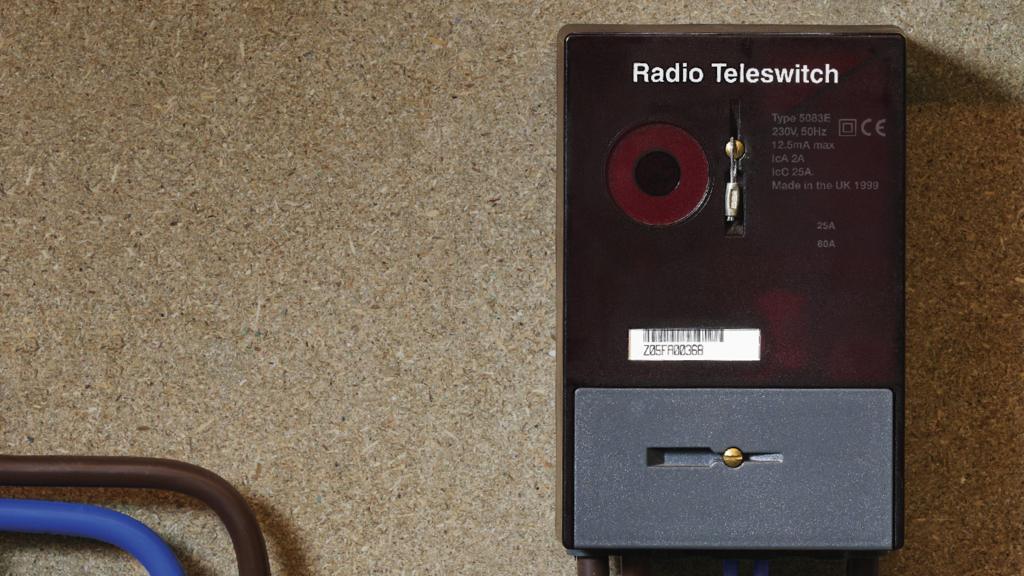Hundreds of thousands of households face the prospect of losing access to hot water or heating as their legacy electricity meters become obsolete.
Energy firms have warned that it will be “very, very difficult” to complete the replacement of all Radio Teleswitching System (RTS) meters with smart meters ahead of the system’s planned shutdown on 30 June.
While most households use standard meters and will remain unaffected regardless of meter type, advocacy groups estimate that over 300,000 properties with RTS meters may experience either a complete loss of heating or be left with systems stuck in the ‘on’ position.
The government has urged the sector to “work urgently to continue to increase the pace of replacements.”
RTS meters, introduced in the 1980s, utilise longwave radio frequencies to alternate between peak and off-peak rates.
As this technology becomes defunct, suppliers have until 30 June to upgrade their customers’ meters.
According to Energy UK, the industry’s trade body, 430,000 households were still reliant on RTS meters for heating and hot water as of March’s end.
The organisation reported the current daily replacement rate exceeds 1,000 RTS meters.
However, with 430,000 meters still in service, a daily rate closer to 5,000 would be needed to ensure every customer is reached in time.
Ned Hammond, deputy director for customers at Energy UK, told BBC Radio 4’s You and Yours that while replacement rates are increasing, “a significant further acceleration” is essential to meet the June deadline.
Pressed on whether full replacement is possible by 30 June, Hammond said: “I wouldn’t want to say impossible – but clearly very, very difficult to get to that point.”
Simon Francis, representing the End Fuel Poverty Coalition, noted the current figures suggest over 300,000 households could be left without a working meter as of 1 July.
He commented: “With increasing pressure on the replacement programme and a shortage of engineers, especially in remote regions, there is a significant risk of prolonged disruption, particularly affecting vulnerable customers.”
According to Ofgem, the energy regulator, RTS meters typically operate heating and hot water via separate circuits, so lighting and plug outlets are unlikely to be directly impacted by the switch-off.
Originally, the RTS network was due to be retired in March 2024, but the deadline was extended to allow more time for replacement efforts.
Mr Hammond said the industry is still aiming to meet the 30 June target “as things stand” and is developing plans for a “managed and very careful phase down,” prioritising support for vulnerable customers.
One obstacle to the rollout is public scepticism toward smart meters. Previous BBC investigations have revealed issues such as inaccurate readings and regional discrepancies in smart meter performance.
Mr Hammond acknowledged this distrust “remains a challenge,” but pointed out that smart meters offer more transparent billing, eliminate manual readings, and introduce access to varied tariffs.
Jane, a Norfolk resident, told the BBC she has an RTS meter and is reluctant to change to a smart meter, feeling pressured to do so. She is currently on an Economy 7 tariff and does not wish to alter her setup.
“It’s not yet mandatory for me to accept one. And I really, really don’t want one. I’m entirely content with my current arrangement,” she stated.
Diane Gray, who resides near Cockermouth in Cumbria, uses an RTS meter on an Economy 7 tariff but has been informed a compatible smart meter cannot be installed at present.
In December, her provider advised: “Currently, we’re unable to install a replacement meter compatible with your setup. Please bear with us as we work on a solution for your meter type.”
She has since received notification that a smart meter installation is scheduled for early June.
“I’ve no idea what position we’ll be in,” she told the BBC.
“It’s very concerning. With installation in the summer, I hope some solution is provided before winter when heating is essential.”
If your energy provider is unable to fit a smart meter, Ofgem states your supplier must install a “suitable meter” ensuring continued service without interruption.
A government spokesperson affirmed it is “supporting Ofgem and energy suppliers to ensure the transition is as smooth as possible for consumers.”
Ofgem advises consumers on how to identify if they have an RTS meter.
Stay informed with our daily newsletter featuring the top headlines. Subscribe here.
The Tawny estate says its solar farm will generate enough power to satisfy its entire energy requirements.
Anticipated declines in energy costs could reverse three consecutive price cap increases.
Councillors in the Borders have decided not to oppose large-scale solar panel developments planned for the Lammermuir Hills.
An earlier rejection by Vale of White Horse District Council was overturned on appeal.
A recent pause presents a significant setback to the US wind energy sector, a key focus of President Trump’s policies.

